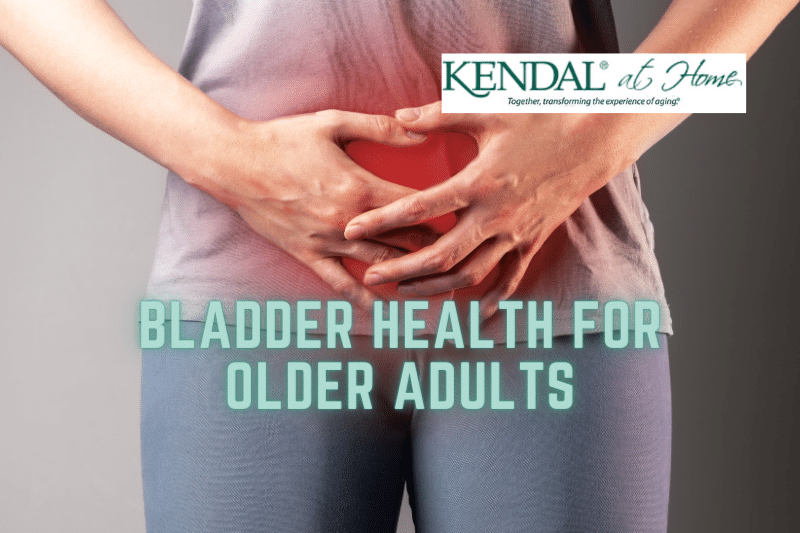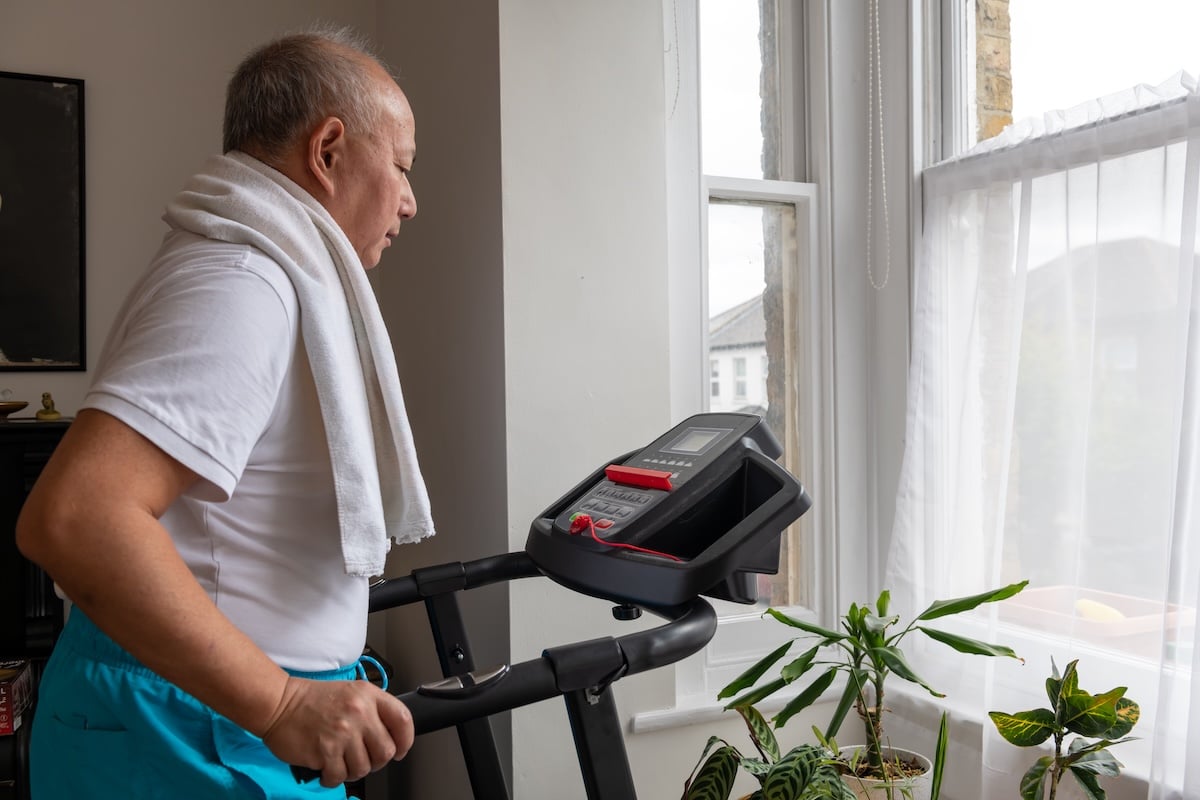Bladder problems are some of the most embarrassing challenges we face as we age. While bladder changes are normal and should naturally happen as we age, they shouldn't become a cause for worry.
Your bladder is a crucial, grapefruit-sized muscular organ that stores and expels urine from the body. It is located in the lower part of your abdomen and can hold around 400ML to 600ML of urine and take up to four hours to fill to the point where you become pressed on a typical day.
As we age and our muscles begin to weaken, it takes a toll on the bladder, reducing bladder capacity. This is usually normal and will feel that way unless an underlying health condition exists.
This article will show you how your bladder should work, the symptoms of bladder problems, and how to prevent them. Let's dive into it.
How Does The Bladder Work?
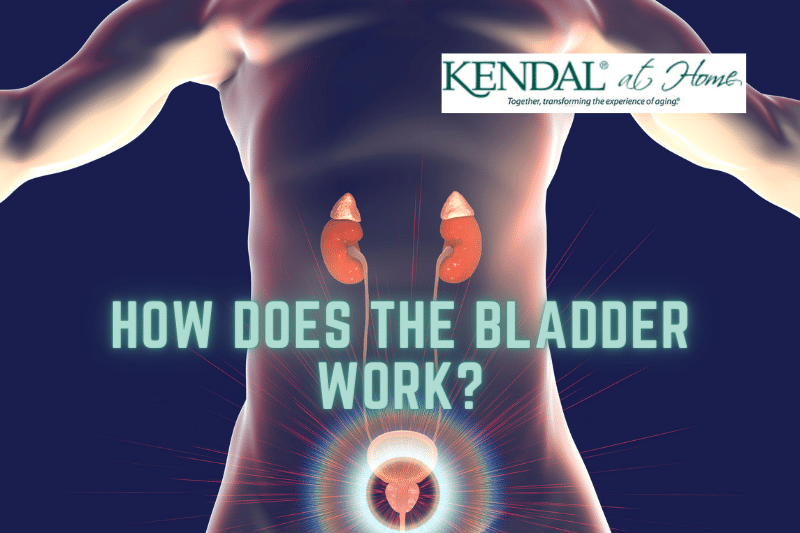
According to the National Institute of Diabetes and Digestive and Kidney Diseases, a bladder is a balloon-shaped organ that acts like a reservoir that can hold up to two cups of urine [1]. The bladder muscle (External Urethral Sphincter) is the only part of the urinary system that you can voluntarily control. Urine stays in the bladder and leaves when you choose — if everything is normal.
The bladder's mechanism is one that is common with other human body parts, like the heart. It is a muscular organ that expands to store urine and contracts to expel it. We all use our bladders several times a day, and most of us usually don't think about it.
Bladder issues become more common as we age due to changes in the bladder tissue. The usual elastic tissue of this hollow organ may become less stretchy and inflexible with age, and the bladder walls and pelvic floor muscles may also become weaker. These changes can cause problems with bladder emptying and leaking urine.
Common Bladder Problems in Older People
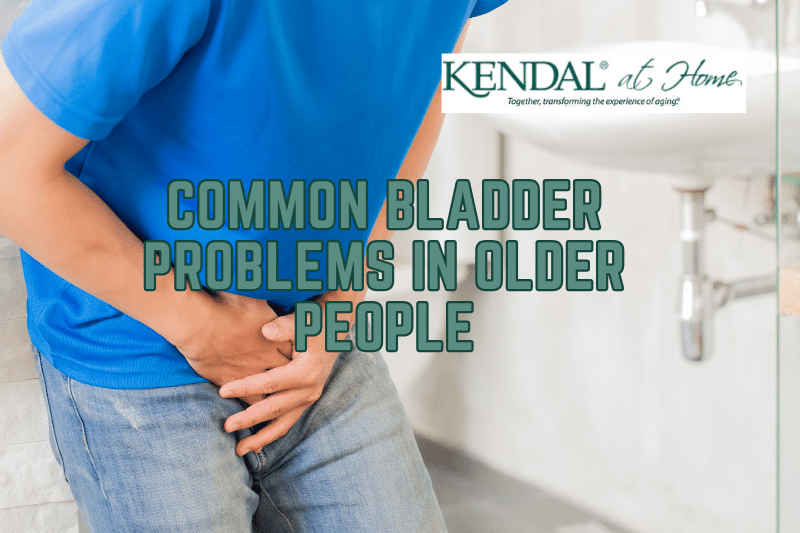
While bladder conditions can happen to anyone at any age, they're more common in aging adults as bladder muscles weaken. Some common bladder problems include the following:
1. Urinary tract infections (UTIs)
According to research by the National Center for Biotechnology Information, UTIs are the most common cause of bladder issues, with up to 50% of women experiencing it at least once in their lifetime [2]. There are three common types of UTI — bladder infection, kidney infection, and urethra infection.
These infections are very common and happen when bacteria enter the urinary tract — anywhere from your bladder to your kidneys. UTIs can occur in older adults due to weakened bladder muscles that make it harder to empty the bladder fully.
This extended stay of old urine in the bladder can make it easier for bacteria to grow, leading to a bladder infection or other types of urinary tract infections. UTIs are characterized by a strong and sudden urge to urinate.
2. Urinary Incontinence
Urinary incontinence, also known as overactive bladder, is a common bladder-related problem in aging people characterized by an involuntary leakage of urine in the bladder. There are different types of urinary incontinence, including:
- Stress Incontinence occurs when there is increased pressure on the bladder, causing urine to leak without control. It can be caused by weak pelvic floor muscles that occur after childbirth, during pregnancy, or aging. High-impact exercises can also cause it.
- Incontinence (Overactive Bladder) occurs when the bladder contracts involuntarily, creating a sudden, intense need to urinate. It can be caused by bladder irritants like food or certain medications.
- Overflow Incontinence is caused by nerve damage, medications, and bladder outlet obstruction, making it difficult to empty the bladder properly. Overflow incontinence can lead to constant dribbling or frequent urination.
- Mixed Incontinence: Some individuals may experience a combination of different types of incontinence, such as a mix of stress and urge incontinence.
3. Bladder Cancer
The National Cancer Institute defines bladder cancer as a situation where bladder cells grow without control [3]. The most common symptoms of bladder cancer are blood in urine (usually painless), difficulty urinating, and constant urge to urinate.
Note that the symptoms of bladder cancer are similar to those of other UTIs, and it is crucial to speak with your doctor to be sure.
4. Bladder Stones
Bladder stones are caused by the formation of calculi (solid particles formed in organs like kidneys or gallbladder). Bladder stones are formed by uric acid, ammonium urate, cystine, calcium oxalate, calcium phosphate, and calcium-ammonium-magnesium phosphate, according to a research paper by Stephen W. Leslie, Hussain Sajjad, and Patrick B. Murphy. [4]
5. Lower urinary tract symptoms
These can include anything from overactive bladder, loss of bladder control, urinary incontinence, and frequent need to urinate. Often, these issues are caused by problems with the bladder, pelvic floor muscles, or urethra.
Though bladder problems are common for older adults, that doesn't mean they're not disruptive to daily life activities. Speak with a health expert if you are experiencing challenges with your bladder and have been exposed to a risk of infection.
Symptoms of Bladder Problems in Aging People
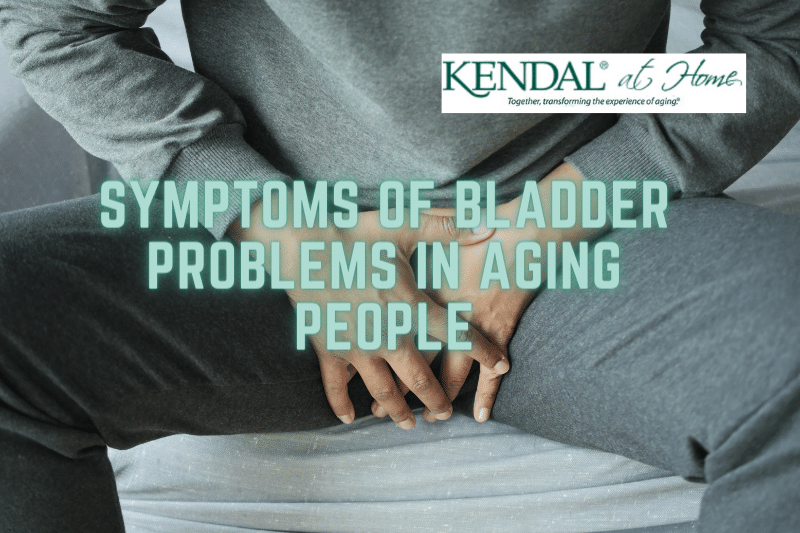
The symptoms of bladder challenges can be similar to symptoms of other internal health challenges. This is why it is crucial to have a health expert examine you to determine the problem. The symptoms can include:
- Urinary incontinence: the inability to hold urine or frequently leaking urine
- Urinating more than eight times per day or waking up several times per night to urinate
- Sudden and urgent need to urinate
- Cloudy or bloody urine
- Pain or burning before or after urinating
- Trouble emptying your bladder or having a weak stream of urine
Speak with a health care provider if you or your beloved elderly is experiencing any of these symptoms, and it's becoming a concern.
How to Prevent Bladder Problems and Maintain Good Bladder Health
While some things that affect the bladder are out of our control — like age or previous pelvic injury—there are things you can do to keep your bladder healthy. Below is a list of ways you can prevent bladder challenges, according to the National Institute of Aging [5]:
1. Stop Holding Urine in Your Bladder For Too Long
It goes without saying that the bladder was designed to hold as much urine as possible and trigger a response in your brain to use the bathroom when it's full. Holding urine for too long in the full bladder can lead to weaker bladder muscles, especially as you get older.
Since the bladder typically fills up around three to four hours, try to urinate within this period to maintain a robust and healthy bladder.
2. Take Your Time To Empty Your Bladder
As you urinate every three to four hours, ensure you're fully emptying your bladder to help prevent the presence and formation of bacteria. There's no need to rush. If you've made it to the bathroom, you can as well see it through for your own health.
3. Practice Pelvic Floor Muscle Exercises
Pelvic floor exercises or kegel exercises help to strengthen the muscles that support the bladder, making it easier to hold in urine and empty the bladder properly.
According to the National Association for Continence [6], kegel exercises are great for when you want to reduce symptoms of urinary incontinence or to strengthen your pelvic floor.
4. Wipe or Wash from Front to Back
A common cause of bladder and urinary tract infections is the entrance of gut bacteria through the urethra. This can happen when you wash from back to front. As a woman, you can promote bladder health by simply washing from front to back after using the toilet.
5. Urinate After Sex
While having sex, some bacteria might make their way through your urethra into your bladder. Urinating after sex ensures you expel these bacteria before they can settle in your urinary tract. Both men and women should practice washing their genitals and urinating after sex to uphold a healthy bladder.
6. Eat Healthy Means And Maintain a Healthy Weight
Bladder problems are very common in obese people because the excess weight on the abdomen can increase bladder pressure and make it more difficult to hold urine.
They may also be caused by certain foods and drinks like soda, spicy foods, etc. Understand your body and practice incorporating a better diet.
7. Exercise regularly
Regular physical exercises can strengthen the muscles surrounding the bladder and help you maintain a healthy weight. It can also prevent constipation, which can lead to bladder issues.
Constipation can affect the bladder by exerting too much pressure on the bladder, keeping the muscles around the bladder from expanding as it fills up.
8. Drink More Water and Limit Alcohol and Caffeine
We'll go back to the old cliche of drinking eight glasses of water daily to stay healthy. Water can help to improve your bladder health by flushing toxins, preventing concentrated urine, maintaining elasticity, and promoting regular urination.
Alcohol and caffeinated drinks, on the other hand, can irritate the bladder, lead to dehydration, and even worsen existing bladder conditions.
9. Avoid Smoking
People with bladder problems like cancer are often smokers. The harmful chemicals in tobacco smoke are absorbed into the bloodstream and eventually excreted in the urine. As these chemicals pass through the bladder, they can damage the cells lining it, increasing the risk for bladder cancer.
Remember, the bladder becomes weaker as we age, as well as the muscles that help with urinary retention. Strengthening these muscles is as crucial as avoiding factors or lifestyles that can deteriorate them.
By practicing the above prevention ideas, you can strengthen your bladder and keep it as healthy as possible.
Diagnosis and Treatment for Bladder Problems in Older Adults
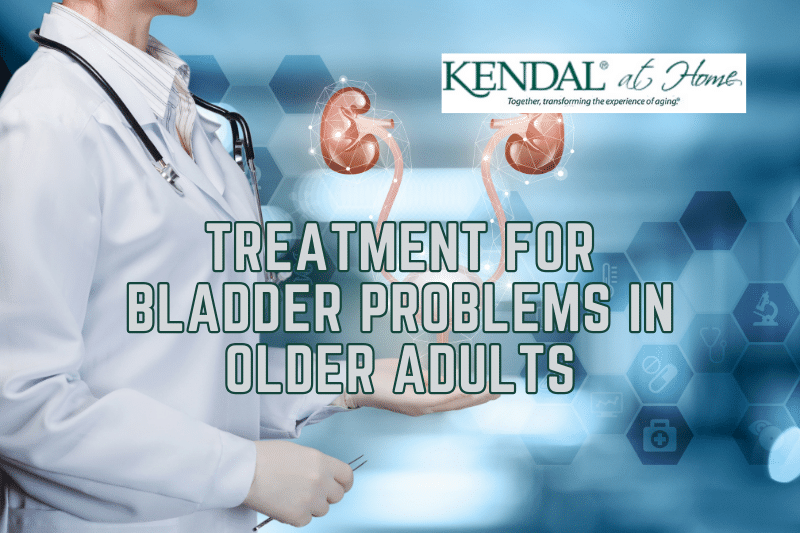
If you're unable to hold urine or are experiencing symptoms that make it hard to urinate, speak with a health expert, and they will proffer a range of treatment options.
To diagnose the underlying cause of the problem, your doctor might recommend options such as:
- Urinalysis involves checking your urine for traces of blood and signs of an infection.
- A bladder diary can also be recommended to record how you use your bladder daily, including how much water you consume, how frequently you use the bathroom, and how you feel in the process.
- Postvoid residual measurement involves urinating into a container that measures urine output. This method is done to see if you completely empty your bladder every time you use the bathroom. The doctor uses a catheter or ultrasound test to ensure this.
After diagnosis, if your doctor finds that there is an underlying bladder challenge, they might attempt the following:
- Treating the underlying bladder condition (UTI, bladder infection, bladder stone, cancer, etc.)
- Bladder training can be offered to help you hold your urine and reduce the frequency of using the bathroom.
- Diet and fluid management involves cutting back on drinks and food that may exacerbate your condition.
- Double voiding and scheduled toilet trips: Double voiding refers to urinating twice with every bathroom visit. Once you urinate, wait in the bathroom for a minute or two and try again until the bladder is empty.
Bladder health is important to everyone, even more so as you age. Keeping your bladder health in great condition can help eliminate the stigma associated with aging, prevent the risks of other related illnesses, and improve your confidence as you age.
How Can I Strengthen My Bladder For Healthy Aging?
Bladder-related conditions don't have to be an embarrassing, life-altering issue. If you're experiencing any of the problems mentioned above or have questions about bladder health, talk with your doctor.
You can strengthen your bladder by practicing healthy hygiene, avoiding irritants, exercising regularly, taking time to fully empty your bladder, and urinating regularly. You can also improve bladder health by drinking more water and limiting alcohol intake.
Speak with your doctor if you're experiencing bladder challenges that might suggest the presence of an underlying condition.
Conclusion
The bladder is a hollow organ below the abdomen that helps us store and expel urine from the body. Bladder challenges occur when urine becomes hard to store or expel, leading to problems like infections, incontinence, and difficulty urinating.
Practicing the strategies in this article can improve your bladder health and lead a more comfortable and peaceful life.

